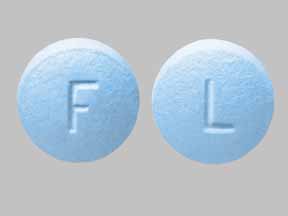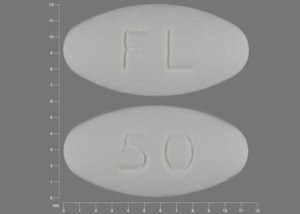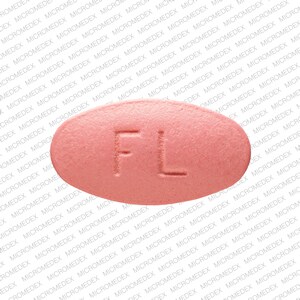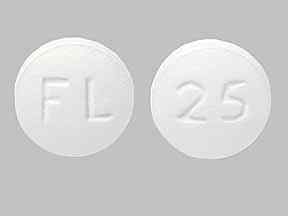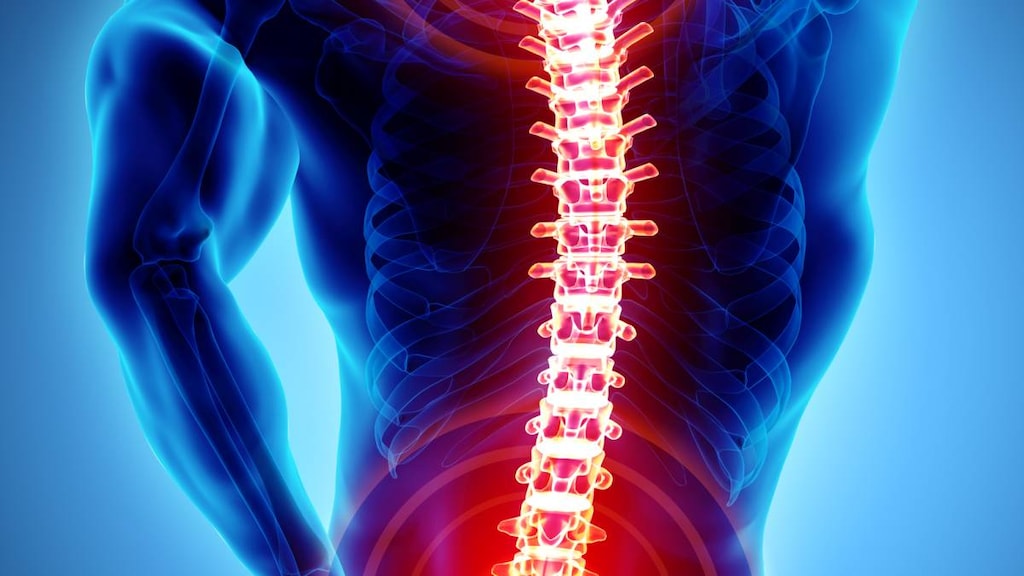What is Savella?
Savella is a prescription medicine used to manage fibromyalgia. It is important to talk with your healthcare provider about the risks of treating fibromyalgia and also the risks of not treating it. You should discuss all treatment choices with your healthcare provider.
It is not known if Savella is safe and effective in children.
What is the most important information I should know about Savella?
Savella and antidepressant medicines may cause serious side effects, including:
1. Suicidal thoughts or actions:
- Savella and antidepressant medicines may increase suicidal thoughts or actions in some children, teenagers, and young adults within the first few months of treatment or when the dose is changed.
- Depression or other serious mental illnesses are the most important causes of suicidal thoughts or actions. Watch for these changes and call your healthcare provider right away if you notice:
- New or sudden changes, in mood, behavior, thoughts, or feelings, especially if severe.
- Pay particular attention to such changes when Savella is started or when the dose is changed.
- Keep all follow-up visits with your healthcare provider and call between visits if you are worried about symptoms.
Call your healthcare provider right away or go to the nearest hospital emergency room if you have any of the following symptoms, especially if they are new, worse, or worry you:
- attempts to commit suicide
- acting on dangerous impulses
- acting aggressive, being angry, or violent
- thoughts about suicide or dying
- new or worse depression
- new or worse anxiety or panic attacks
- feeling agitated, restless, angry or irritable
- trouble sleeping (insomnia)
- an increase in activity or talking more than what is normal for you
- other unusual changes in behavior or mood
Call your healthcare provider right away or go to the nearest hospital emergency room if you have any symptoms of the serious side effects listed below:
2. Serotonin Syndrome. This condition can be life-threatening, symptoms may include:
- agitation, hallucinations, coma or other changes in mental status
- coordination problems or muscle twitching (overactive reflexes)
- sweating or fever
- diarrhea
- muscle rigidity
- dizziness
- tremor
Symptoms such as racing heartbeat, high or low blood pressure, nausea, vomiting, and flushing are common with Savella. Call your healthcare provider right away if you get these symptoms and they are severe or if they happen with any of the symptoms of serotonin syndrome listed above.
3. Increase in blood pressure or heart rate: Savella may increase your blood pressure or heart rate. Your blood pressure and heart rate should be checked before you start and during treatment with Savella. Before taking Savella, tell your healthcare provider if you have high blood pressure or problems with your heart or blood vessels (cardiovascular disease).
4. Seizures or convulsions.
5. Liver problems. Symptoms of liver problems may include:
- itching
- right upper abdominal pain
- dark urine
- yellowing of your skin or eyes
- enlarged liver
- increased liver enzymes
6. Low salt (sodium) levels in the blood. Elderly people may be at greater risk for this. Symptoms may include:
- headache
- weakness or feeling unsteady
- confusion, problems concentrating or thinking or memory problems
7. Abnormal bleeding: Savella and other similar medicines (antidepressants) may increase your risk of bleeding or bruising, especially if you take the blood thinner warfarin (Coumadin, Jantoven), a nonsteroidal anti-inflammatory drug (NSAID), or aspirin.
8. Manic episodes
- greatly increased energy
- severe trouble sleeping
- racing thoughts
- reckless behavior
- unusually grand ideas
- excessive happiness or irritability
- talking more or faster than usual
9. Problems with urination
- decreased urine flow
- unable to pass any urine
Men may be more likely to have these symptoms, and may develop pain in their testicles or have problems with ejaculation.
10. Visual problems
- eye pain
- changes in vision
- swelling or redness in or around eye
Only some people are at risk for these problems. You may want to undergo an eye examination to see if you are at risk and receive preventative treatment if you are.
Do not stop Savella without first talking to your healthcare provider. Stopping Savella too quickly may cause symptoms, some serious, including:
- anxiety, irritability, or confusion
- feeling tired or problems sleeping
- headache, dizziness, seizures
- electric shock-like sensations, ringing in ears
Who should not take Savella?
Do not take Savella if you:
- take a Monoamine Oxidase Inhibitor (MAOI). Ask your healthcare provider or pharmacist if you are not sure if you take an MAOI, including the antibiotic linezolid.
- Do not take an MAOI within 5 days of stopping Savella unless your healthcare provider tells you to.
- Do not start Savella if you stopped taking an MAOI in the last 14 days unless your healthcare provider tells you to.
- People who take Savella close in time to an MAOI may have serious or even life-threatening side effects. Get medical help right away if you have any of these symptoms:
- high fever
- uncontrolled muscle spasms
- stiff muscles
- rapid changes in heart rate or blood pressure
- confusion
- loss of consciousness (pass out)
What should I tell my healthcare provider before taking Savella?
Before starting Savella, tell your healthcare provider if you:
- have heart problems or high blood pressure
- have liver problems
- have kidney problems
- have or had seizures or convulsions
- have bipolar disorder or mania
- have low sodium levels in your blood
- have or had bleeding problems
- drink alcohol. Talk to your healthcare provider about how often and how much alcohol you drink.
- have any other medical conditions
- are pregnant or plan to become pregnant. It is not known if Savella will harm your unborn baby.
Pregnancy registry: There is a pregnancy registry for women who take Savella during pregnancy. The purpose of the registry is to collect information about the health of you and your baby. You may talk to your healthcare provider about how you can take part in this registry, or you may call the Registry directly at 1-877-643-3010 or go to www.savellapregnancyregistry.com. - are breastfeeding or plan to breastfeed. Savella can pass into your breast milk and may harm your baby. Talk to your healthcare provider about the best way to feed your baby while taking Savella.
Tell your healthcare provider about all the medicines that you take, including prescription and over-the counter medicines, vitamins, and herbal supplements. Savella and some medicines may interact with each other, may not work as well, or may cause serious side effects when taken together.
Your healthcare provider or pharmacist can tell you if it is safe to take Savella with your other medicines. Do not start or stop any medicine while taking Savella without talking to your healthcare provider first.
How should I take Savella?
- Take Savella exactly as your healthcare provider tells you.
- Your healthcare provider will slowly increase your dose to find the dose that is right for you.
- On the first day of treatment, you will take 1 dose of Savella as prescribed.
- After your first dose, your healthcare provider will tell you how much Savella to take and when to take it, usually 2 times each day.
- You may take Savella with or without food. Taking Savella with food may help you tolerate it better.
- If you miss a dose, skip the missed dose and take the next dose at your regular time.
- Tell your healthcare provider if you feel that your condition is not improving during treatment with Savella.
- If you take too much Savella, call your healthcare provider or go to the nearest hospital emergency room right away.
What should I avoid while taking Savella?
Do not drive or operate machinery until you know how Savella affects you. Savella may make you less alert and affect your reaction time.
What are the possible side effects of Savella?
Savella may cause side effects, some serious, including:
The most common side effects of Savella include:
- nausea
- headache
- constipation
- dizziness
- trouble sleeping
- hot flush
- increased sweating
- vomiting
- irregular heartbeat (palpitations)
- heart rate increased
- dry mouth
- high blood pressure (hypertension)
Tell your healthcare provider if you have any side effect that bothers you or that does not go away.
These are not all the possible side effects of Savella. For more information, ask your healthcare provider or pharmacist.
Call your doctor for medical advice about side effects. You may report side effects to FDA at 1-800-FDA-1088.
Savella Images
General information about the safe and effective use of Savella
Medicines are sometimes prescribed for purposes other than those listed in a Medication Guide. Do not use Savella for a condition for which it was not prescribed. Do not give Savella to other people, even if they have the same condition. It may harm them.
You may ask your healthcare provider or pharmacist for information about Savella that is written for health professionals.
For more information call 1-800-678-1605 or go to www.savella.com.
How should I store Savella?
- Store at room temperature between 68°F to 77°F (20°C to 25°C).
Keep Savella and all medicines out of the reach of children.
What are the ingredients in Savella?
Active ingredient: milnacipran hydrochloride
Inactive ingredients: dibasic calcium phosphate, povidone, carboxymethylcellulose calcium, colloidal silicon dioxide, magnesium stearate, and talc.
The film coat contains the inactive ingredients:
12.5 mg tablets: FD&C Blue #2 Aluminum Lake, polyvinyl alcohol, polyethylene glycol, talc, titanium dioxide
25 mg tablets: Polyvinyl alcohol, polyethylene glycol, talc, titanium dioxide
50 mg tablets: Polyvinyl alcohol, polyethylene glycol, talc, titanium dioxide
100 mg tablets: FD&C Red #40 Aluminum Lake, polyvinyl alcohol, polyethylene glycol, talc, titanium dioxide

